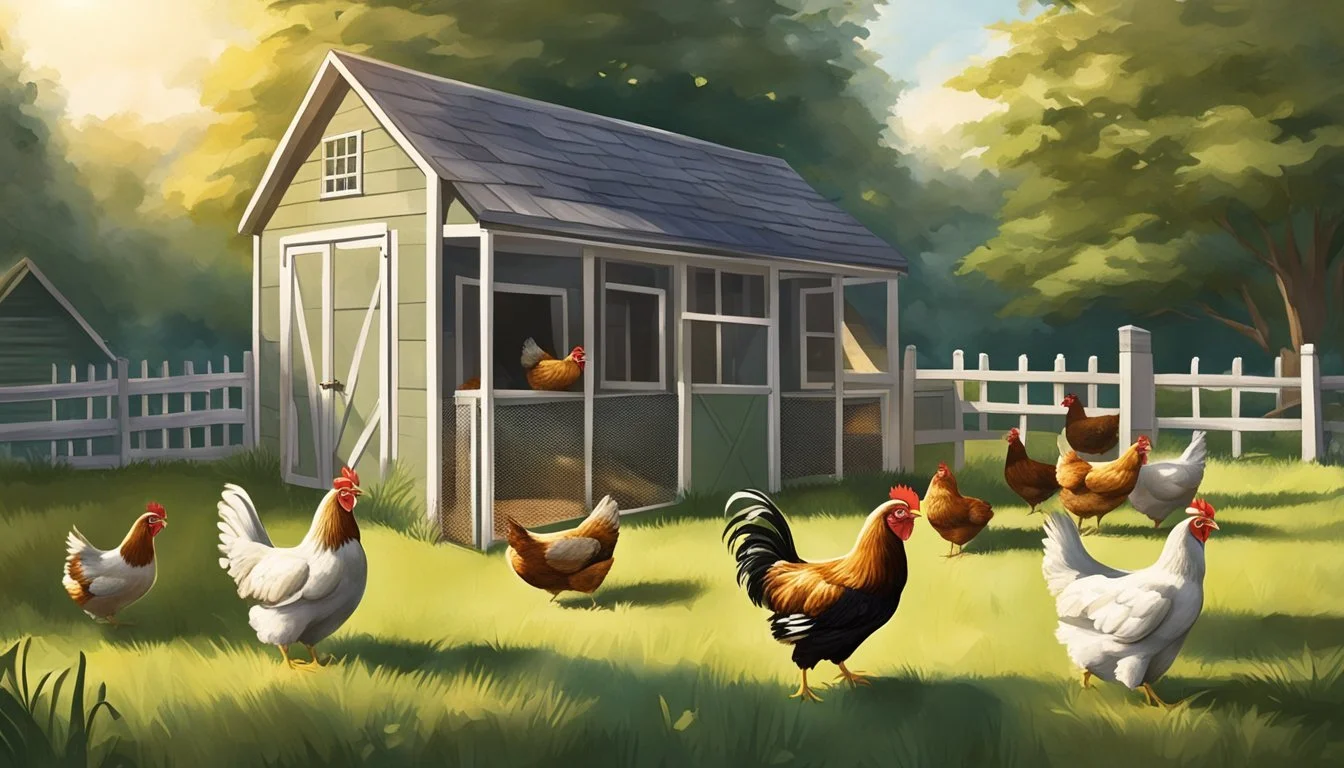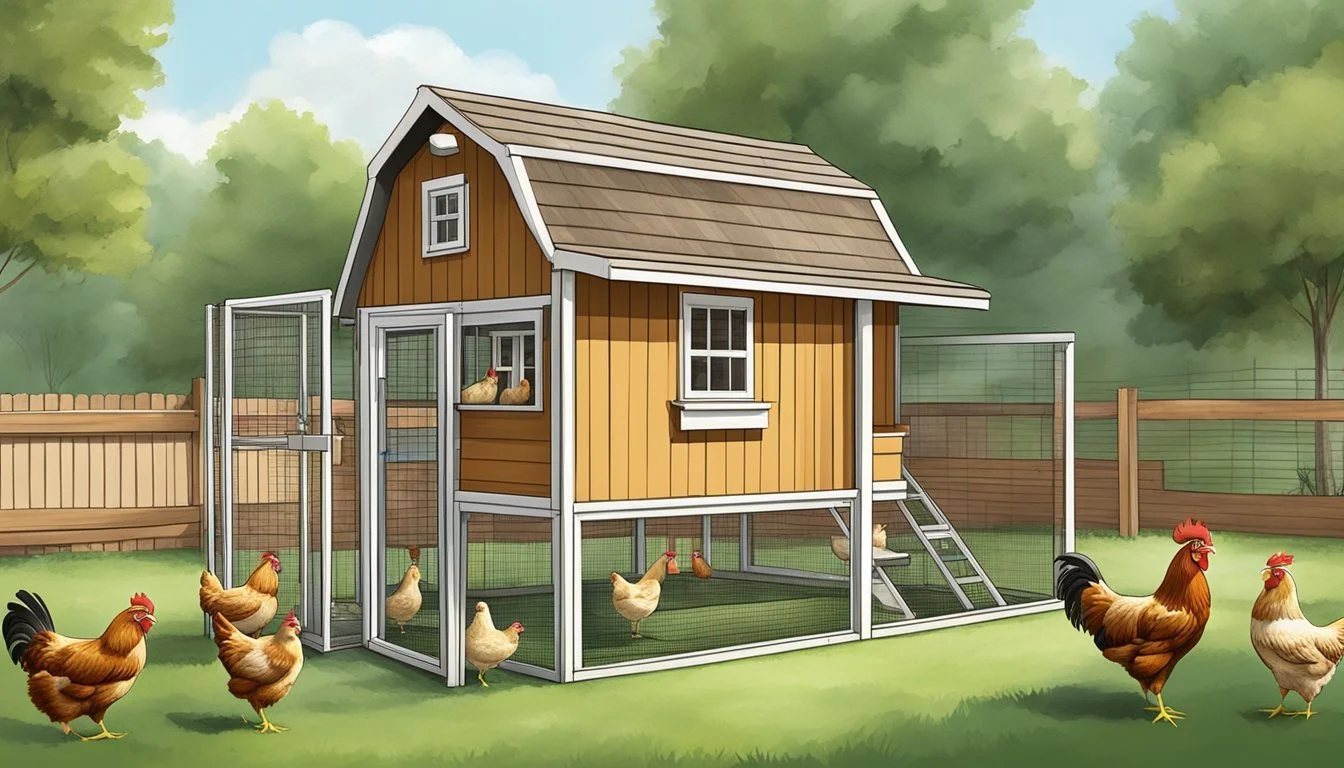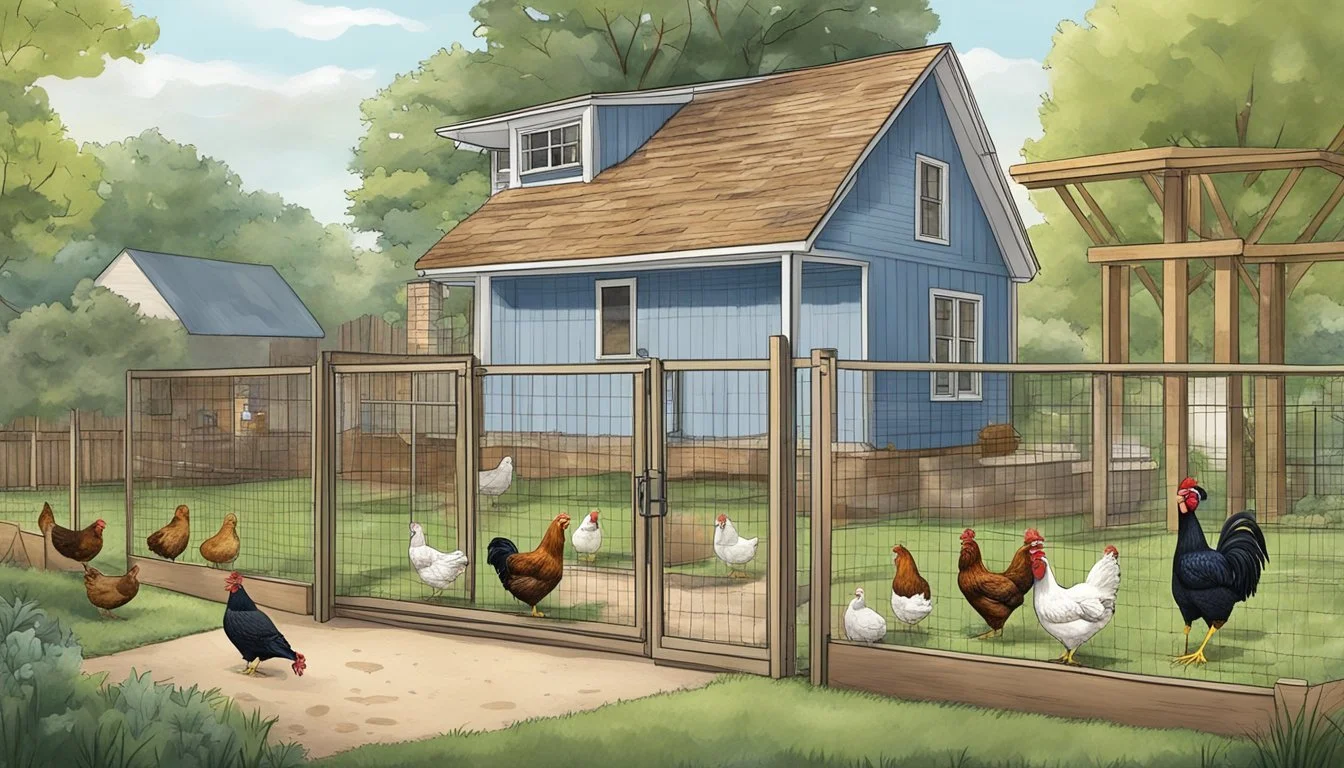Keeping Backyard Chickens in Nashville, TN
Essential Tips for Urban Poultry Farming
In recent years, the trend of urban homesteading has taken Nashville by storm, with more residents drawn to the idea of raising their own backyard chickens. The city's shift towards sustainability has sprouted a growing community of chicken enthusiasts, eager for a taste of rural living within the urban landscape. Raising chickens offers a unique opportunity for Nashville residents to connect with their food source by providing fresh eggs, natural garden fertilization, and an enriching educational experience for families.
Nashville's regulations for keeping backyard chickens are designed to integrate urban poultry farming with the metropolitan environment harmoniously. Individuals living in Nashville are allowed to keep chickens with certain stipulations; roosters are prohibited to maintain noise levels, and the number of hens is capped, depending on the size of the property. Properties of half an acre or more may house up to six hens, while those with less space are limited to four. These measures ensure that urban chicken farming contributes positively to the community and local ecosystems.
Chicken coops must adhere to specific space and placement requirements to promote the well-being of the chickens and to be considerate of neighbors. The law mandates minimum square footage per bird within the henhouse and a larger enclosed outdoor run for the chickens to explore. Additionally, coops are required to be predator-proof and placed at a respectful distance from property lines and neighboring residences, ensuring the safety and comfort of the chickens as well as fostering good relations between neighbors in the community.
Legal Overview and Permits
In Nashville, TN, keeping backyard chickens is regulated by specific ordinances which require residents to obtain a permit. These rules ensure the well-being of the chickens and address concerns of the local community.
Nashville Chicken Ordinances
In the Metro Nashville/Davidson County area, residents are permitted to keep backyard hens but not roosters. The local ordinances restrict the number of chickens based on lot size and enforce regulations to maintain community harmony and animal welfare. Roosters are prohibited due to noise concerns.
Permit and Fee Requirements
To legally keep hens in Nashville residential areas, individuals must obtain a Domestic Hen Permit. This permit is regulated by the Metro Health Department Animal Control. A non-refundable fee is attached to the permit application, the cost of which may be verified with the Animal Control Authority or through the official Nashville government website.
Zoning and Lot Size Regulations
Zoning restrictions in Nashville play a crucial role in determining the eligibility for keeping backyard chickens:
Properties of half an acre or more are allowed to have up to six hens.
Properties with less than half an acre can keep up to four hens.
Breeding, slaughtering, and the commercial sale of eggs or chickens within residential areas are strictly prohibited. These regulations ensure that the primary purpose of backyard hens is for personal enjoyment and egg consumption rather than commercial enterprise.
Setting Up for Chickens
When preparing for backyard chickens in Nashville, TN, residents must consider the specific breed suited to their environment, the design and necessities of a chicken coop, and the importance of a secure space to protect the poultry from predators.
Choosing the Right Chicken Breed
Selecting the appropriate chicken breed for your Nashville backyard hinges upon climate adaptability, egg production, and temperament. Varieties like the Plymouth Rock and Rhode Island Red thrive in various climates and are noted for their robust egg-laying capabilities. Aim for breeds that are hardy and can deal with Tennessee's varied weather patterns.
Essentials of Chicken Coops
A hen house in Nashville must offer at least two square feet per bird, as mandated by local law. An ideal chicken coop should include:
Adequate space: Ensure 6 square feet of outdoor run area per chicken.
Ventilation: Proper airflow is crucial but varies seasonally; more is required during Nashville's hot summers.
Protection: The coop must be sturdy to withstand weather and provide safety from predators.
Nesting boxes: Allocate one box per 3-4 hens; bedding should be soft and clean.
Perches: Chickens need a place to roost; perches should have enough room for all hens to roost comfortably.
Creating a Predator-Proof Space
To prevent predators from harming the chickens, a predator-proof enclosure is non-negotiable. The enclosure should have:
Fencing: Surround the coop with a fence at least 6 feet tall and bury it at least 12 inches underground to deter digging.
Covering: Use wire mesh or netting to protect from aerial and climbing predators.
Locks: Install secure latches that can't be easily manipulated by clever wildlife such as raccoons.
By adhering to these guidelines, Nashville residents can create a safe and comfortable environment that supports the well-being of their backyard chickens.
Health and Maintenance
Maintaining the health and cleanliness of backyard chickens is crucial for the welfare of the birds and the quality of the eggs they produce. Proper feeding, cleanliness, and disease prevention are key factors that require diligent attention.
Proper Feeding and Nutrition
Chickens require a balanced diet to remain healthy and produce high-quality eggs. The owner should provide a complete feed that contains the right combination of proteins, carbohydrates, fats, vitamins, and minerals.
Protein level: 16-18% for laying hens.
Calcium-rich foods: Boost eggshell strength.
Fresh water: Available at all times to maintain hydration.
Cleanliness and Odor Control
Cleansing the coop and surrounding area is essential to prevent the accumulation of waste and control odors.
Regular manure removal: At least once a week.
Composting manure: A beneficial method for disposal.
Well-ventilated coop: Reduces humidity and ammonia levels.
Disease Prevention and Veterinary Care
Disease prevention comprises regular monitoring of the flock and ensuring access to veterinary care when necessary.
Vaccination and regular health checks: Minimize the risk of illness.
Pest control: Necessary to prevent mites and lice.
Isolation of new or sick birds: To prevent the spread of disease amongst the flock.
Implementing these practices ensures that chickens are healthy, the egg production is optimal, and that the local environment is respected.
Community Relations and Legal Compliance
In Nashville, TN, maintaining harmony between backyard chicken enthusiasts and their communities hinges on mindful practices and adherence to local laws. Residents must navigate potential issues related to noise, public nuisance, and legal regulations.
Managing Noise and Public Nuisance
Backyard hens are generally quiet, but roosters are known for their crowing, which can be a noise concern. Nashville's regulations forbid the keeping of roosters to prevent noise complaints and maintain peace within neighborhoods. If hens become a noise concern or create a public nuisance, residents are subject to fines and penalties.
Noise Reduction Strategies:
Spatial Arrangement: Place coops away from property lines.
Soundproofing: Incorporate sound-dampening materials in coop construction.
Handling Complaints and Neighbors
Open communication with neighbors is crucial to preemptively address any concerns about the presence of backyard chickens. Residents should take immediate and responsive action upon receiving complaints to foster positive community relations.
Proactive Steps for Harmony:
Inform and Educate: Share planned practices with neighbors.
Responsive Resolution: Address and resolve issues swiftly.
Ensuring Legal Compliance
Compliance with local ordinances ensures that residents can legally keep their backyard chickens. In Nashville, permits are required for keeping hens, and specific regulations may dictate the maximum number of chickens allowed depending on lot size.
Compliance Checklist:
Permit Acquisition: Obtain a backyard chicken permit.
Adherence to Rules: Follow all local regulations and zoning laws.
Keeping backyard chickens in Nashville is permissible within the confines of law, respectful of neighbors, and attentive to noise and nuisance concerns.
Tips for Sustainability and Expansion
In Nashville, TN, residents embracing backyard chicken-keeping are contributing to sustainable living while ensuring a consistent supply of fresh eggs. To expand these efforts efficiently, certain practices are pivotal.
Breeding and Growing Your Flock
Breeding backyard chickens allows for a self-replenishing supply of birds that can consistently produce fresh eggs. Success in breeding requires understanding chicken genetics and caring for chicks from incubation to maturity. Nashville residents should also be aware of municipal codes, which may have stipulations on the number of chickens allowed.
Selection: Choose healthy, robust chickens for breeding to ensure strong offspring.
Record-keeping: Maintain detailed records of breeding pairs, hatch rates, and chick development.
Diversifying with Other Poultry
In addition to chickens, incorporating other domesticated farm animals like ducks, geese, or even goats can increase the sustainability of a backyard farm.
Ducks: Known for their hardiness and egg-laying abilities, ducks can also aid in pest control.
Geese: Geese contribute to lawn maintenance and can act as guard animals due to their vigilant nature.
Goats: While not poultry, goats provide milk and can help manage weed growth.
Contributing to Local Food Systems
By participating in local agriculture initiatives, Nashville residents can strengthen community food systems.
Egg Sharing and Sales: Selling or trading surplus fresh eggs can support local food security.
Education: Hosting workshops about raising backyard chickens and other poultry educates and encourages others to participate in local food production.
Additional Considerations
When keeping backyard chickens in Nashville, TN, there are several important factors homeowners must take into account. These range from adhering to local laws to ensuring hens are well-protected and understanding the broader environmental impacts.
Navigating Local Chicken Laws
In Nashville, TN, individuals are allowed to keep hens but must comply with specific local ordinances. Properties less than half an acre may have up to four hens, while those with half an acre or more can keep up to six. Roosters are prohibited to avoid noise issues. A chicken permit or domestic hen permit may be required, so chicken keepers should check with local zoning departments. Additionally, structures housing chickens must be kept a certain distance from the property line, which helps maintain neighborly relations and adhere to homeowners association regulations if applicable.
Understanding Hen Protection and Welfare
Chickens must be provided with a habitat that protects them from various threats while ensuring their welfare. Shelters should shield them from predators, both exotic and native wildlife, as well as domestic animals like dogs. Proper fencing is crucial to prevent escapes and protect the chickens from potential harm. Owners should also be aware that slaughtering chickens may not be allowed within city limits, and they must take measures to manage waste and feathers responsibly.
Evaluating Environmental Impacts
Keeping chickens can have environmental implications that must be considered. Chicken keepers should ensure that their activities do not adversely affect their surroundings. They must handle waste and bedding materials in a way that does not negatively influence soil or water sources. Furthermore, chickens can help reduce food waste by consuming kitchen scraps, but keepers should balance this practice with a concern for maintaining healthy diets for their hens.








